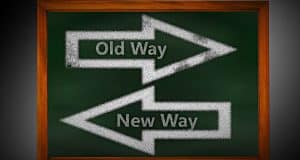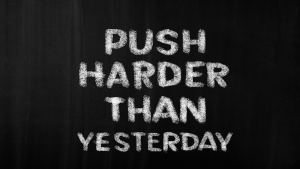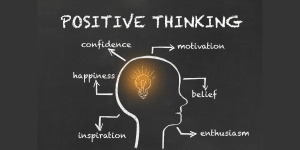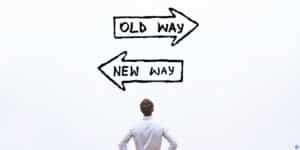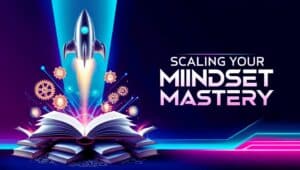
The Power of Self-Help Books
Self-help books have long been regarded as a powerful tool for personal growth and transformation. They offer guidance, inspiration, and practical advice to help individuals overcome challenges and unlock their inner strength. In the case of depression, self-help books can be particularly beneficial, as they provide valuable insights and strategies to manage and alleviate symptoms.

By delving into the pages of these books, individuals can find solace, motivation, and the tools they need to embark on a transformative journey towards healing and personal growth.
- The Power of Self-Help Books
- Benefits of Reading Self-Help Books for Personal Growth
- How to Choose the Best Self-Help Book for You
- Top Self-Help Books for Personal Growth
- The Psychology Behind Self-Help Books
- Techniques and Exercises for Personal Growth from Self-Help Books
- Impactful Quotes from Popular Self-Help Books
- Self-Help Book Recommendations for Specific Areas of Personal Growth
- The Role of Self-Help Books in Achieving Long-Term Personal Growth
- Conclusion: Embracing the Journey of Personal Growth Through Self-Help Books
Benefits of Reading Self-Help Books for Personal Growth
Reading self-help books can have numerous benefits for personal growth, especially when it comes to dealing with depression. First and foremost, these books provide a sense of empowerment. By gaining knowledge and understanding of the psychological aspects of depression, individuals can take control of their emotions and develop effective coping mechanisms. Additionally, self-help books offer a safe space for reflection and self-discovery. They encourage readers to explore their thoughts, emotions, and behaviors, ultimately leading to a deeper understanding of themselves and their struggles.
Moreover, self-help books foster a sense of community and connection. Reading about the experiences of others who have overcome depression can be immensely comforting and reassuring. It reminds individuals that they are not alone in their journey and that there is hope for a brighter future. Furthermore, self-help books can equip individuals with practical tools and techniques to manage depression on a day-to-day basis. From mindfulness exercises to cognitive-behavioral strategies, these books provide actionable steps that can be implemented in daily life, leading to positive changes and improved mental well-being.
How to Choose the Best Self-Help Book for You
With the plethora of self-help books available, choosing the right one for your needs can be overwhelming. To ensure you find a book that resonates with you and addresses your specific struggles, consider the following factors. First, identify the area of personal growth you wish to focus on. Whether it’s managing depression, building self-esteem, or cultivating resilience, narrowing down your goals will help you find a book that aligns with your needs.
Next, consider the author’s expertise and credentials. Look for books written by professionals in the field of psychology or individuals who have personal experience with overcoming depression. Reading reviews and testimonials can also provide valuable insights into the effectiveness and relevance of the book. Additionally, take into account the writing style and tone of the book. Some individuals may prefer a more scientific approach, while others may resonate with a more relatable and conversational tone.
Lastly, trust your intuition. Sometimes, a book may simply speak to you on a deeper level. Listen to your instincts and choose a book that resonates with your inner voice. Remember, personal growth is a unique journey, and finding the right self-help book is an essential step towards unlocking your inner strength and overcoming depression.
Top Self-Help Books for Personal Growth
-
“Feeling Good: The New Mood Therapy” by David D. Burns: This classic self-help book provides practical techniques based on cognitive-behavioral therapy to combat depression and improve mental well-being.
-
“The Power of Now” by Eckhart Tolle: Tolle’s book offers profound insights and mindfulness practices to help individuals break free from negative thought patterns and find inner peace.
-
“Man’s Search for Meaning” by Viktor E. Frankl: This powerful memoir explores the human search for purpose and meaning, offering inspiration and hope for those struggling with depression.
-
“Daring Greatly” by Brené Brown: Brown’s book delves into the importance of vulnerability and embracing imperfections to cultivate resilience and wholehearted living.
-
“The Four Agreements” by Don Miguel Ruiz: This spiritual guide offers four transformative agreements that can help individuals break free from self-limiting beliefs and live a more authentic life.
-
“The Happiness Advantage” by Shawn Achor: Achor’s book explores the link between happiness and success, providing actionable strategies to rewire the brain for positivity and resilience.
-
“The Untethered Soul” by Michael A. Singer: Singer’s book delves into the nature of consciousness and offers practical tools for transcending negative thoughts and emotions.
By exploring these self-help books, individuals can gain valuable insights, practical tools, and inspiration to navigate their journey towards healing and personal growth.
The Psychology Behind Self-Help Books
Self-help books are rooted in the principles of psychology, drawing from various therapeutic approaches and theories. One of the key psychological frameworks underlying self-help books is cognitive-behavioral therapy (CBT). CBT focuses on the connection between thoughts, emotions, and behaviors, aiming to identify and modify negative thought patterns that contribute to depression.
Self-help books often incorporate CBT techniques such as cognitive restructuring, which involves challenging and replacing negative thoughts with more positive and realistic ones. These books also emphasize the importance of self-awareness and self-reflection, encouraging individuals to explore their emotions, beliefs, and underlying causes of their depression.

Another psychological principle commonly found in self-help books is positive psychology. Positive psychology focuses on promoting well-being and resilience by cultivating positive emotions, strengths, and virtues. Self-help books rooted in positive psychology often provide exercises and techniques to foster gratitude, mindfulness, and self-compassion, which can contribute to the alleviation of depression symptoms.
Ultimately, the psychology behind self-help books aims to empower individuals by providing them with a deeper understanding of their minds and emotions, as well as practical tools to navigate their journey towards personal growth and well-being.
Techniques and Exercises for Personal Growth from Self-Help Books
Self-help books are filled with various techniques and exercises designed to promote personal growth and well-being. These techniques often draw from different therapeutic approaches and can be implemented in daily life to foster positive changes. Here are a few examples of techniques commonly found in self-help books:
-
Mindfulness meditation: Many self-help books emphasize the practice of mindfulness meditation as a way to cultivate present-moment awareness and reduce stress. Mindfulness exercises, such as focusing on the breath or observing thoughts without judgment, can help individuals manage depressive symptoms and develop a greater sense of inner peace.
-
Journaling: Writing down thoughts and emotions in a journal can be a powerful tool for self-reflection and self-discovery. Self-help books often provide prompts and exercises to guide individuals in their journaling practice, helping them gain clarity, process emotions, and identify patterns or triggers related to their depression.
-
Gratitude practice: Gratitude has been shown to have a positive impact on mental well-being. Self-help books often encourage individuals to cultivate a gratitude practice by regularly reflecting on and expressing gratitude for the positive aspects of their lives. This practice can shift focus from negative thoughts to a more positive and appreciative mindset.
-
Visualization and affirmations: Self-help books often introduce techniques such as visualization and affirmations to reprogram the mind for positivity and success. By visualizing desired outcomes and repeating positive affirmations, individuals can create a mental framework that supports their personal growth and helps overcome depressive thoughts.
These are just a few examples of techniques and exercises that self-help books offer for personal growth. By incorporating these practices into their daily lives, individuals can take proactive steps towards managing depression and unlocking their inner strength.
Impactful Quotes from Popular Self-Help Books
Throughout the pages of self-help books, there are often profound and impactful quotes that resonate with readers and offer inspiration. Here are a few quotes from popular self-help books that can uplift and motivate individuals on their journey of personal growth:
-
“You have within you right now, everything you need to deal with whatever the world can throw at you.” – “Feeling Good: The New Mood Therapy” by David D. Burns
-
“Realize deeply that the present moment is all you ever have.” – “The Power of Now” by Eckhart Tolle
-
“When we are no longer able to change a situation, we are challenged to change ourselves.” – “Man’s Search for Meaning” by Viktor E. Frankl
-
“Vulnerability is not winning or losing; it’s having the courage to show up and be seen when we have no control over the outcome.” – “Daring Greatly” by Brené Brown
-
“The only limit to what you can accomplish is the limit you place on your own imagination.” – “The Four Agreements” by Don Miguel Ruiz
-
“Happiness is not the belief that we don’t need to change; it’s the realization that we can.” – “The Happiness Advantage” by Shawn Achor
-
“The greatest freedom is to be free of our thoughts.” – “The Untethered Soul” by Michael A. Singer
These quotes serve as reminders of the power within each individual to overcome challenges, embrace vulnerability, and cultivate happiness and personal growth.
Self-Help Book Recommendations for Specific Areas of Personal Growth
While self-help books for depression can be transformative, it is essential to recognize that personal growth extends beyond managing depressive symptoms. Here are some self-help book recommendations for specific areas of personal growth:

-
Building self-esteem: “The Six Pillars of Self-Esteem” by Nathaniel Branden. This book offers practical exercises and insights to develop healthy self-esteem and cultivate self-worth.
-
Stress management: “Full Catastrophe Living” by Jon Kabat-Zinn. Kabat-Zinn’s book provides mindfulness-based stress reduction techniques to navigate the challenges of stress and find balance.
-
Relationships: “The Five Love Languages” by Gary Chapman. This book explores the different ways individuals give and receive love, helping readers improve their relationships and deepen connections.
-
Career development: “The 7 Habits of Highly Effective People” by Stephen R. Covey. Covey’s book offers a holistic approach to personal and professional success, providing practical strategies for goal-setting, time management, and effective communication.
-
Overcoming trauma: “The Body Keeps the Score” by Bessel van der Kolk. This book explores the impact of trauma on the mind and body, offering insights and techniques for healing and recovery.
These self-help books can serve as valuable resources for individuals seeking personal growth in specific areas of their lives, complementing the journey towards overcoming depression.
The Role of Self-Help Books in Achieving Long-Term Personal Growth
Self-help books play a crucial role in achieving long-term personal growth by providing individuals with the knowledge, tools, and inspiration necessary to embark on a transformative journey. However, it is essential to recognize that self-help books are not a quick fix or a substitute for professional help.
To achieve long-term personal growth, it is crucial to combine the insights and strategies from self-help books with other forms of support, such as therapy, counseling, or support groups. These additional resources can provide personalized guidance, deeper exploration of underlying issues, and a safe space for processing emotions.
Furthermore, personal growth is an ongoing and dynamic process. It requires consistent effort, self-reflection, and a willingness to embrace change. Self-help books can serve as a roadmap for this journey, offering guidance and support along the way. By implementing the techniques and exercises from these books, individuals can integrate personal growth into their daily lives, creating lasting positive changes.
What are the best self-help books of all time?
“The 7 Habits of Highly Effective People“ by Stephen R. Covey: This book has been a game-changer for many individuals seeking personal and professional growth. Covey presents a framework for achieving success by cultivating effective habits, such as being proactive, beginning with the end in mind, and seeking win-win outcomes.
“How to Win Friends and Influence People“ by Dale Carnegie: This classic self-help book provides timeless advice on building relationships and improving social skills. Carnegie’s principles encourage readers to genuinely listen, show appreciation, and understand others’ perspectives to win people over and achieve success in various aspects of life.
“Man’s Search for Meaning” by Viktor E. Frankl: In this profound book, Frankl shares his experiences as a Holocaust survivor and a psychiatrist. He explores the concept of finding meaning in life, even amidst suffering and adversity. This book offers valuable insights into the human condition and the importance of purpose and values.
“The Four Agreements“ by Don Miguel Ruiz: Ruiz outlines four powerful principles for personal freedom and transformation based on ancient Toltec wisdom. The agreements – be impeccable with your word, don’t take anything personally, don’t make assumptions, and always do your best – provide a practical guide for living a fulfilling and authentic life.
“The Power of Now” by Eckhart Tolle: This book emphasizes the importance of living in the present moment and detaching from mental constructs that cause suffering. Tolle’s teachings help readers overcome anxiety, gain clarity, and find inner peace by focusing on the present rather than dwelling on the past or worrying about the future.
It’s important to note that these are just a few examples, and there are many other remarkable self-help books available. The best self-help book for an individual may vary depending on their specific goals, challenges, and personal preferences. It’s always recommended to explore various options and find the book that resonates most with you.
Conclusion: Embracing the Journey of Personal Growth Through Self-Help Books
Personal growth is a transformative journey that requires courage, self-reflection, and a commitment to change. Self-help books can be invaluable companions on this journey, offering guidance, inspiration, and practical tools to manage depression and unlock inner strength.
By exploring the world of self-help books, individuals can gain a deeper understanding of themselves, develop effective coping mechanisms, and cultivate resilience. Whether it’s through mindfulness practices, cognitive restructuring, or exploring the power of vulnerability, these books provide a wealth of resources to support personal growth.

Remember, personal growth is a unique and individual process. Trust your instincts, choose a self-help book that resonates with you, and embark on the journey towards unlocking your inner strength and transforming your life. Embrace the power of self-help books and open yourself to the endless possibilities of personal growth. The journey begins now.

